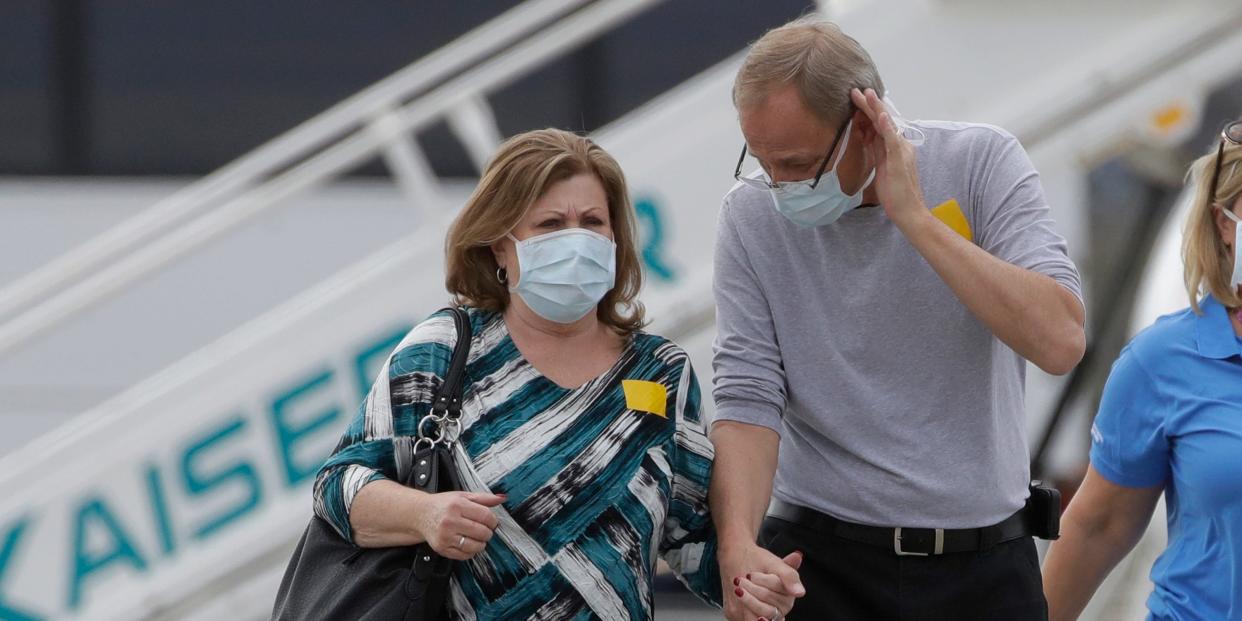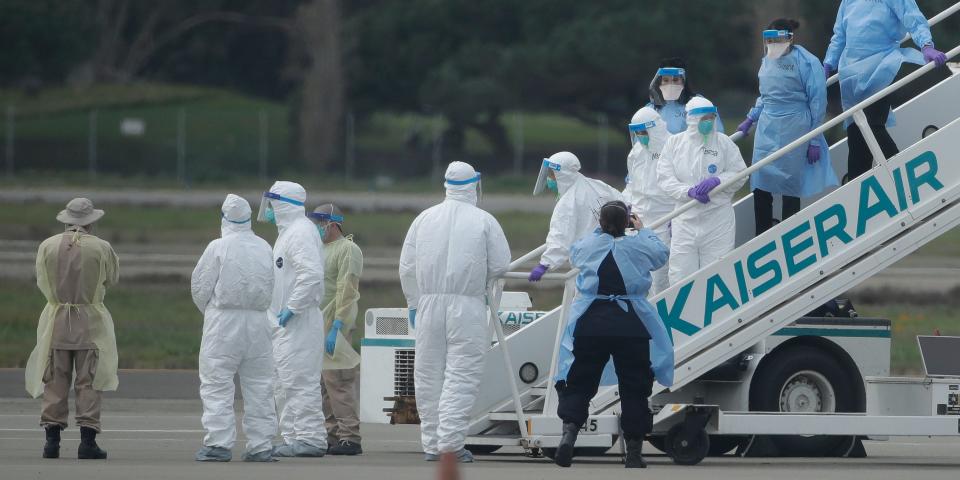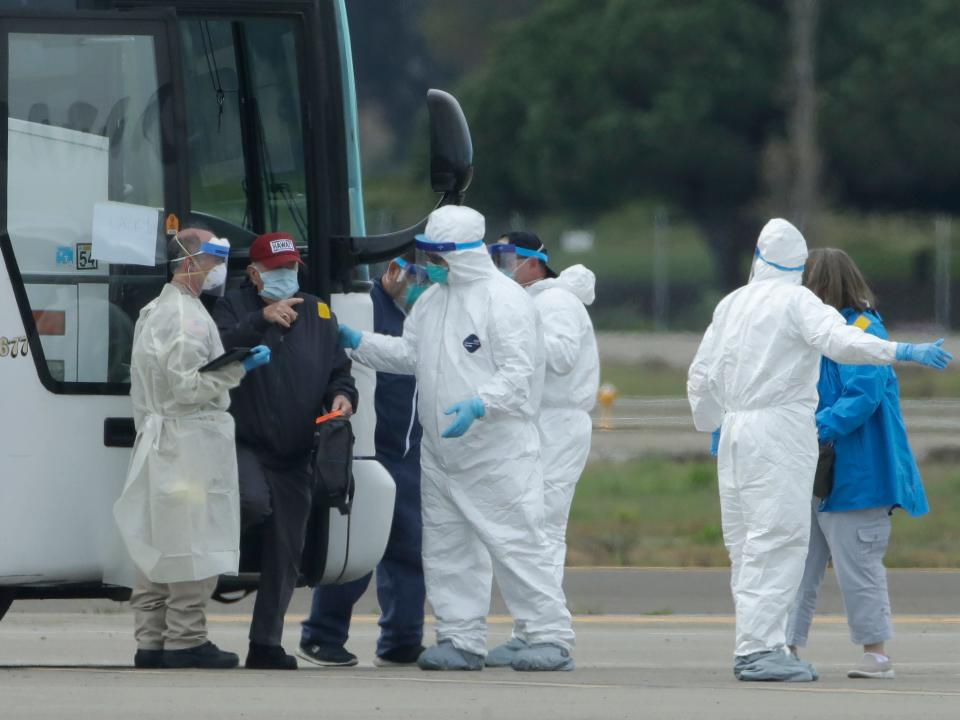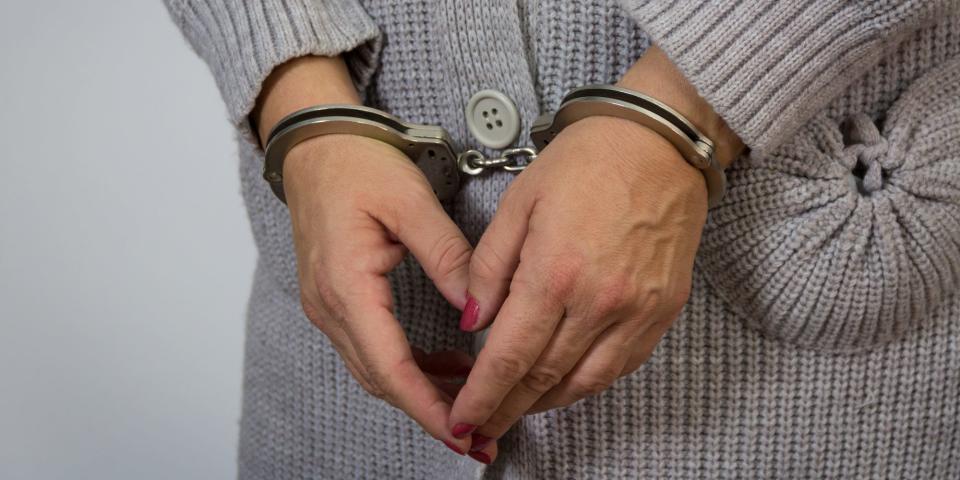Yes, you can face criminal charges, be fined, and even jailed for breaking a coronavirus quarantine

Jeff Chiu/AP
Americans could face jail time, criminal charges, and fines if they break quarantine or isolation, according to the CDC.
Federal, local, and state health officials have quarantine and isolation enforcement power within state borders.
While lawful quarantine and isolation measures can be implemented, they are rarely enforced.
Around the United States, people are being told to go into quarantine to help halt the spread of the novel coronavirus.
It's a new experience. If a state tells you to enter quarantine, what will happen if you don't? The father of a coronavirus patient in Missouri apparently broke the family's quarantine to take his other daughter to a school dance, leading officials to warn that they could be quarantined "by the force of law."
It's not an idle threat. Depending on state and local statutes, individuals could face fines, criminal charges, and even jail time for breaking quarantines.
There's a difference between "self-quarantine" and a legally enforced quarantine order
According to the Center for Disease Control and Prevention, "federal, state, or local public health orders may be issued to enforce isolation, quarantine or conditional release."
COVID-19 mainly spreads from person-to-person through close contact (about 6 feet) and through respiratory droplets released when an infected person coughs or sneezes, according to the CDC. For this reason, health officials have recommended various isolation and quarantine measures for people who could be infected with the coronavirus.

Jeff Chiu/AP
While "isolation" refers to the separation of someone who is "reasonably believed to be infected with a communicable disease and potentially infectious," the CDC clarifies that "quarantine" in general means the separation of individuals or groups who are "reasonably believed to have been exposed to a communicable disease but not yet symptomatic."
Recommendations of "self-quarantine" or "self-isolation" are voluntary, however, isolation and quarantine measures can be legally enforced.
Because state and local governments are primarily responsible for maintaining public health and controlling the spread of diseases within state borders, many have laws authorizing quarantine and isolation, usually through the state's health authority.
Another page on CDC's website adds: "Public health authorities at the federal, state, local, and tribal levels may sometimes seek help from police or other law enforcement officers to enforce a public health order."
However, the CDC only recommends taking such measures with individuals who have a high risk of exposure to the disease, which includes people who have traveled to the Hubei Province in China or live with or provide care to a patient that has tested positive for COVID-19 "without using recommended precautions."
Many of the quarantine and isolation measures during the US coronavirus outbreak have been recommended without the force of the law, meaning that violating these health orders would not mean jail time or fines.

AP Photo/Jeff Chiu
According to the St. Louis County Executive, Sam Page, officials relied on "relied on common sense and goodwill toward the community" when asking the Missouri father and his family to self-quarantine after his daughter became symptomatic. The man, however, did not comply.
"The way the family has reacted to this situation is really a tale of two reactions," Page said. "A study of how people should and should not react to the coronavirus." Page later leveled a warning to the family that they could be lawfully forced to quarantine.
While authorities do have the power to implement legal authorities to enforce public health orders for these measures, the National Conference of State Legislatures noted that they are rarely used. The last time large scale isolation and quarantine was enforced in American was in response to the influenza pandemic in the early 1900s, according to the CDC.
However, if quarantine measures were to be legally enforced by state or local authorities, the severity of possible punishments range from state to state.
Depending on states and localities, you could face felony charges and be imprisoned for up to a year
The worst penalties an individual could face are felony charges (in Texas, South Carolina, New Hampshire, and Mississippi), imprisonment for up to a year (in Wyoming), or fines up to $10,000 (also in Wyoming). A person could be liable for both breaking isolation and quarantine orders or for entering isolation or quarantine premises without explicit authorization from a public health authority.
The National Conference of State Legislatures outlines state quarantine laws and measures but notes that it may not be a comprehensive list.

Zoka74/Shutterstock
The novel coronavirus has swept across the country, infecting more than 1,350 and taking the lives of at least 38 people in the US. Nineteen states across the US have declared a state of emergency in response to the outbreaks and have passed measures including banning gatherings of more than 250 people in some states.
While it does not appear that anyone has been punished by the law for not complying with quarantine and isolation measures yet, individuals have faced real repercussions in the past.
A Wisconsin man was criminally charged for breaking a measles quarantine on February 22, according to NBC News.
Jeffery Murawski allegedly was charged with a misdemeanor for "willfully violating the recommendations of a local health officer or subjecting others to danger of contracting a communicable disease" after he left his home to go to the gym.
His wife, Christine Bennett, who allegedly aided him in breaking his quarantine by driving him to the gym was charged with the same misdemeanor.
Read More:
19 states have declared states of emergency to fight coronavirus — here's what it means for them
Read the original article on Insider

